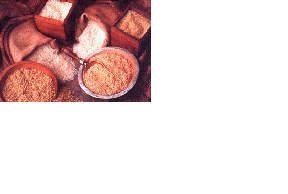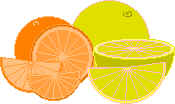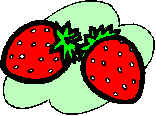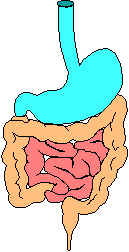 Vitamins
Vitamins
 Vitamins
Vitamins
¡@
Vitamins have no energy value
but they are essential for maintaining good h ealth. Every vitamin has a special function and occurs
in special types of food. If there is an insufficient supply of
vitamins in our diet, we will suffer from vitamin deficiency
diseases. However, vitamins are only needed in small amounts,
excessive amounts of some vitamins
ealth. Every vitamin has a special function and occurs
in special types of food. If there is an insufficient supply of
vitamins in our diet, we will suffer from vitamin deficiency
diseases. However, vitamins are only needed in small amounts,
excessive amounts of some vitamins  such as vitamin A, vitamin D are harmful
to the body.
such as vitamin A, vitamin D are harmful
to the body.
Vitamins include vitamins A, B1, B2, B6, B12, C, D, E and K. They are divided into two groups: water-soluble vitamins including vitamins B and C, and fat-soluble vitamins including vitamins A, D, E and K.
Here are informations about some of these vitamins:
| Vitamin (Chemical name) | Sources |
Function(s) | Deficiency disease | Other informations |
A (Carotene) |
Egg yolk, cod liver
oil, milk, cheese, carrots and leafy vegetables |
~Keeps the skin, bone
and eyes healthy ~Helps to prevent nose and throat infection |
Night blindness |
Fat-soluble, some loss at high temperature |
B |
Cereals and yeast |
Prevent occurance of diseases such as skin disease, important for metabolism. It helps in forming RBC and maintaining the central nervous system. | Loss of appetite, general fatigue and beri beri | --- |
C (Ascorbic acid) |
Fresh fruits(
especially oranges and lemons) and green vegetables fruits(
especially oranges and lemons) and green vegetables |
~For healthy skin and
gums ~Heals wounds quickly, prevent nose and throat infection |
Scurvy |
Water-soluble, destroyed by prolonged cooking |
| D(Calciferol) | Cod liver oil, milk
and egg yolk yolk |
~For strong bones and teeth | Rickets in children and bone fractures in adults | Fat-soluble, very stable |
Absorption of vitamins:
Vitamins are absorbed from the ileum into blood capillaries which carry them to all parts of the body.
Excess vitamin C will not be stored in the body, while excess vitamins A and D are stored in the liver.
| CARBOHYDRATES | PROTEINS | FATS | VITAMINS | MINERAL SALTS | WATER | DIETARY FIBRES |
¡@